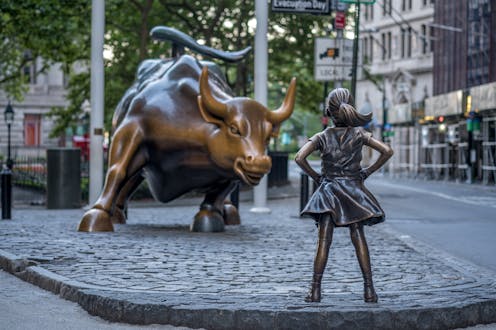how Wall Street supermen cashed in on pandemic misery and chaos
- Written by Carl Rhodes, Professor of Organization Studies, University of Technology Sydney

Chaos Kings: How Wall Street Traders Make Billions in the New Age of Crisis[1] chronicles the cold-blooded response of Wall Street to the COVID pandemic. New York finance journalist Scott Patterson reports how savvy investors used the devastation of the pandemic to reap billions in profits.
Combining insider access with masterful storytelling, Patterson’s meticulously researched book tells the tales of the investors, scientists and mathematicians whose creativity, expertise and risk-taking created financial opportunities out of a worldwide disaster that killed millions.
Review: Chaos Kings: How Wall Street Traders Make Billions in the New Age of Crisis (Scribner)
Chaos Kings is not so much about the rapacious “greed is good” mentality of the 1980s. In 2021, the prevailing attitude was more like “greed is amoral”, technical even. As the profits flowed from the COVID disaster, there was little hint of any ethical quandary. All stops were taken out in the pursuit of profit from pain.
The most disconcerting aspect of Patterson’s account is how the men who did this (they are all men) are generally presented as quite sympathetic, if flawed, characters. On the one hand, Patterson presents them as unique, each one something of a stock-market superman. On the other hand, they remain human, all too human.

















